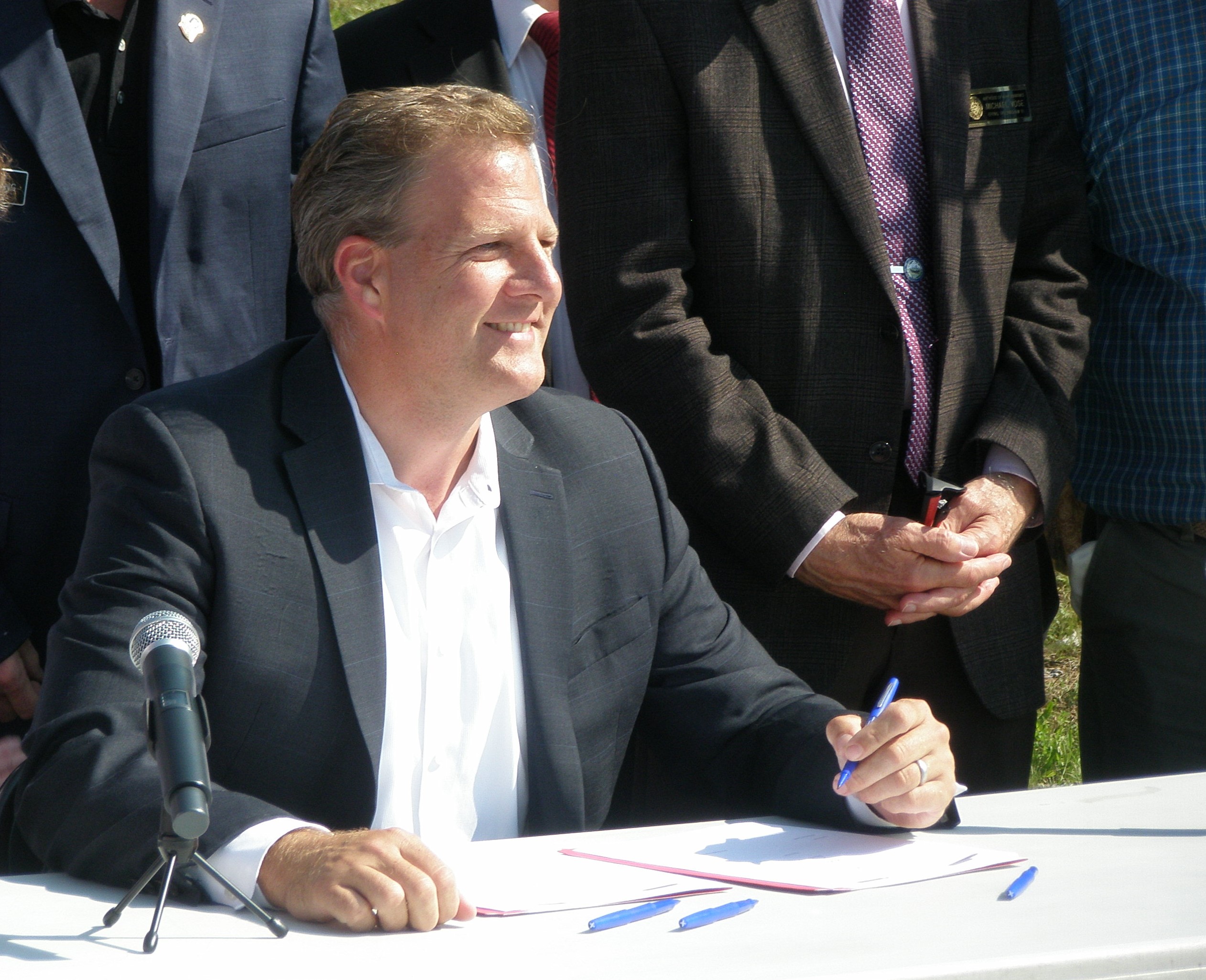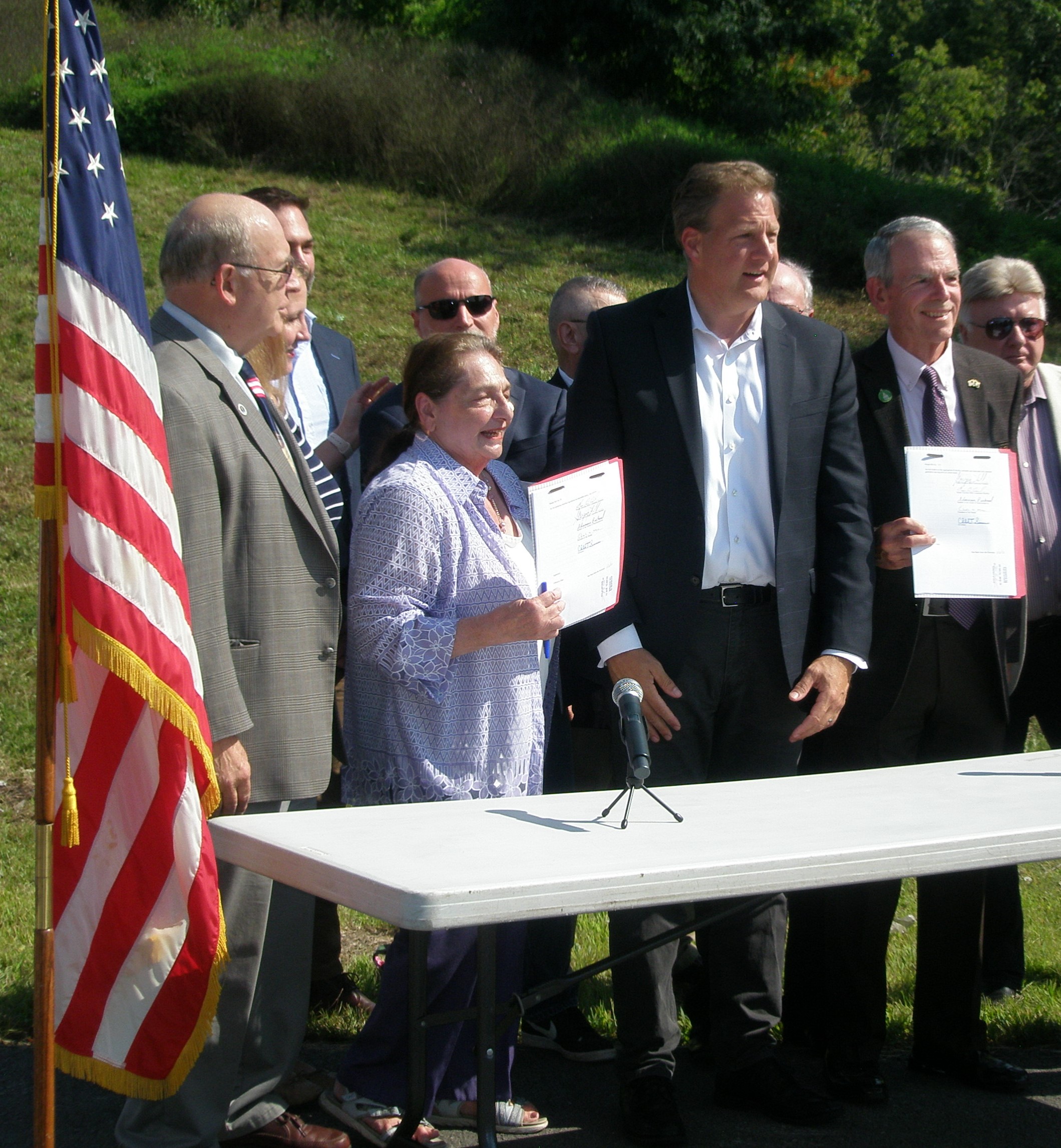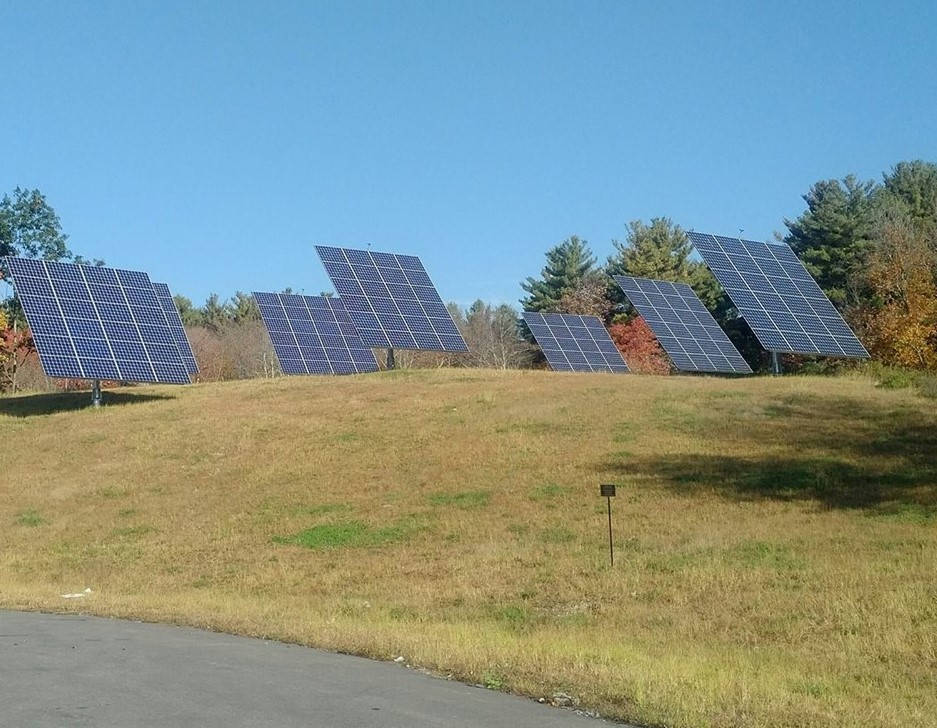
DERRY, NH – Before Gov. Chris Sununu signed the expanded net metering bill into law on Thursday, the town of Derry had already set in motion their plans to build an expanded solar farm on 10 acres of a town-owned landfill site on Kendall Pond Road.
The project would construct a 2.2-megawatt solar installation, which would provide the town with enough power to serve all 30 of its municipal buildings, including its wastewater infrastructure.
In anticipation of the bill getting the governor’s approval, the town issued a request for proposals in early August, under the coordination of Public Works Director Mike Fowler and with assistance from the Derry Net Zero Task Force, according to the task force chairman, Jeff Moulton.
“We started this a couple years ago in anticipation that there would be some legislative relief. It never came,” Moulton said.
The proposal in late 2018 was to build a 1 MW solar farm at the cost of about $3 million, which would have covered about 80 to 90 percent of the town’s electricity needs. At the time Sununu vetoed the proposed net metering expansion bill, which put the Derry project on pause.
This bill does exactly what the town hoped for, by expanding the net metering for municipalities for up to 5 MW production facilities. It was more narrowly written legislation, since it didn’t include an expansion for residential solar.
In recognition of how the bill would benefit Derry, Sununu signed it at the town’s existing solar array at the transfer station.
On Aug. 3, about seven or eight solar companies came to a site walk of the landfill, Moulton said. Bids are due by Sept. 1. After that, the Net Zero Task Force will make its recommendation to the town and Moulton hopes to have a contract in place by the start of 2022.

Construction is expected to begin by summer.
“This is a historic situation,” said Derry Town Councilor Joshua Bourdon.
Bourdon founded the Net Zero Task Force when he ran for reelection about five years ago and is now serving as its town council liaison.
He said the bill helps place New Hampshire’s solar regulations on a more level playing field with other states, will encourage more environmentally sustainable energy production and save taxpayers money.
“Yesterday’s bill signing gives … us an opportunity to actually make a big difference, to eliminate our electric bills in their entirety,” Bourdon said. “And conversely, to do nothing is economically and environmentally irresponsible.”
Moulton said the proposed 2.2 MW solar farm will produce 3.7-kilowatt hours (kwh) per year, which is enough to cover about $400,000 annual energy savings, or at least $3.5 million over the 25-year lifespan of the array.
He said $3.5 million is a conservative estimate since the energy market can be unpredictable, prices can fluctuate and they may be saddled with higher-than-expected interconnectivity costs from Eversource. If all goes perfectly, he said savings could be as high as $6 million.

The town will have a choice to either buy the array outright, with a bond, or do a lease-purchase agreement, wherein the developers own the array and sell the energy to the town for at least the first five years, with an option for the town to buy it later, after private investment incentives have discounted the price.
The new legislation also makes it possible for the Derry Cooperative School District (which serves grades K-8) to create its own solar arrays. Moulton said its buildings currently use about 2.7 kwh per year and would require an additional 1.5 MW solar capacity.
They’re currently studying each of the school facility rooftops to see if it would be possible to install them there, since that would be cheaper, Moulton said. Alternatively, the additional 1.5 MW can be installed at the landfill site, or some combination of both.
A small, 86 KW solar farm was installed at the town transfer station in 2018 as a sort of proof of concept. It produces 150,000 kwh per year and saved the town about $50,000 since it was installed.







